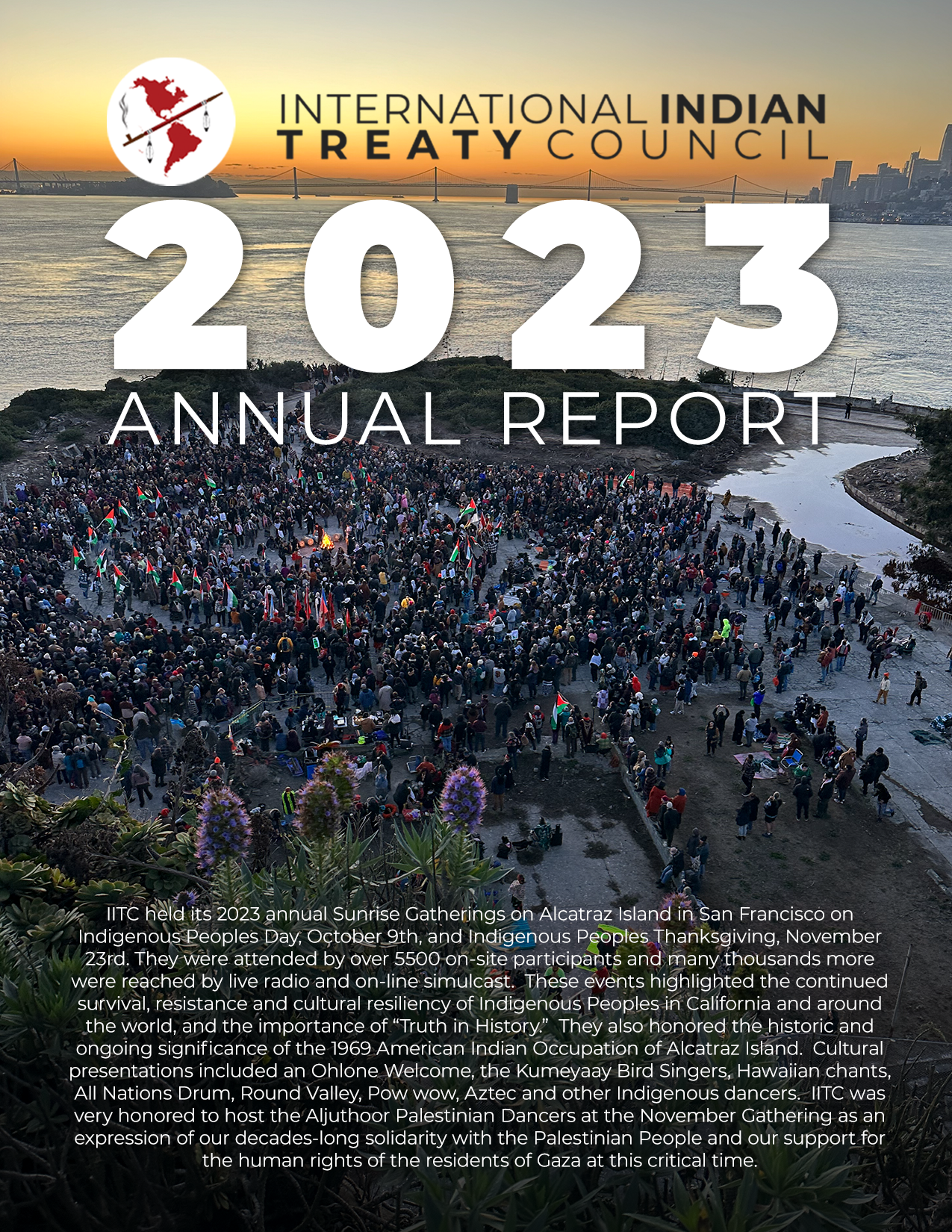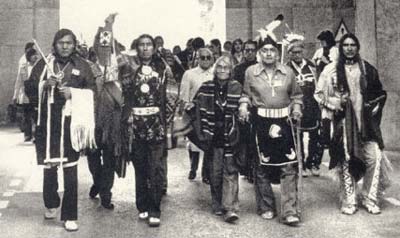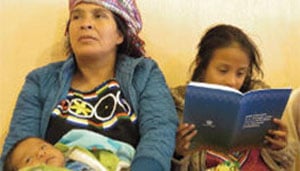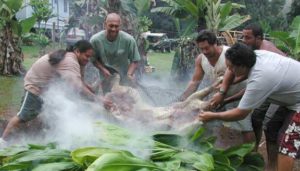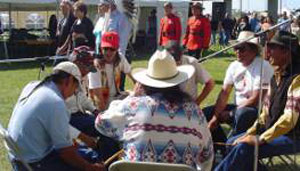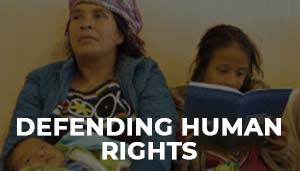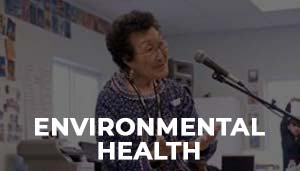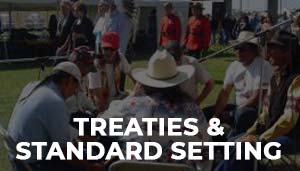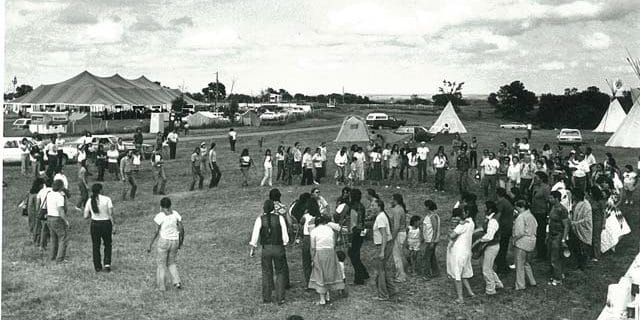The Special Rapporteur on the right to adequate housing will focus her forthcoming report to the General Assembly on the right to adequate housing for Indigenous Peoples.
Many Indigenous Peoples around the world live in substandard housing conditions or under threat of forced eviction from their ancestral lands without free, prior and informed consent. The number of Indigenous Peoples living in urban areas is increasing, and many lack access to adequate, affordable or culturally appropriate housing. In some countries, social exclusion and discrimination has resulted in disproportionate numbers of Indigenous Peoples living in a situation of grossly inadequate housing and homelessness, thereby undermining their enjoyment of other rights, such as the right to health, to safe drinking water and sanitation.
Indigenous Peoples also face barriers to access to justice to claim their right to housing before community or national justice systems. When access to justice is possible, judicial decisions can fail to take into due consideration international human rights law as it pertains to Indigenous Peoples. Where positive decisions are rendered, they are often not respected by public authorities or business enterprises. Where national housing strategies or action plans are in place, they may be developed without meaningful consultation and overlook the right to adequate housing of Indigenous Peoples and other social groups at risk of marginalization.
The UN Declaration on the Rights of Indigenous Peoples and international human rights law requires States to take effective measures to ensure the improvement of housing conditions of indigenous peoples and underlines that indigenous peoples have a right to be actively involved in developing, determining and administering housing and other social and economic programmes affecting them.
The Special Rapporteur would like to receive information about the housing conditions of Indigenous Peoples in both rural and urban contexts. The Special Rapporteur recognizes that Indigenous Peoples are more likely to frame related human rights concerns in terms of the right to their ancestral lands, and is therefore interested to receive any information that speaks to the close connection between Indigenous peoples’ land rights and their right to housing. In this regard, she is also interested to receive any related jurisprudence from national or regional systems. She is also interested to learn of any housing related laws, policies or programs which might be regarded as good practices from the point of view of Indigenous Peoples.
The report of the Special Rapporteur on the right to adequate housing will be drafted in consultation with representatives of Indigenous Peoples and in close collaboration with the Special Rapporteur on the rights of Indigenous Peoples. The final report will include a set of recommendations for Governments including indigenous authorities, private stakeholders and civil society organizations to ensure that the right to adequate housing of Indigenous Peoples is respected, protected and realised in a non-discriminatory manner.
The report also aims to be a practical tool for representatives of Indigenous Peoples, community-based organizations, civil society organizations, National Human Rights Institutions, lawyers, members of the judiciary and legal experts for claiming the right to adequate housing and ensuring its protection.
For State and indigenous authorities, the report will provide guidance how they can ensure that their human rights obligations in relation to the right to adequate housing for Indigenous Peoples are respected, and Sustainable Development Goal 11.1 is also attained for all Indigenous People within their jurisdiction. For business enterprises and financial institutions, the report will set out recommendations to ensure respect for the right to adequate housing for Indigenous Peoples.
The report will be presented to the 74th session of the General Assembly in October 2019.
Who should respond to the call for contributions?
The Special Rapporteur invites States, Indigenous Authorities, international and regional organizations, national judicial institutions, National Human Rights Institutions, Indigenous Peoples’ and civil society organizations, lawyers, academics, financial and business institutions, and any other relevant stakeholders to share relevant information for the report, including reports, judicial decisions, relevant safeguards, good practices, housing policies and strategies.
When and Where to send submissions?
The Special Rapporteur on the right to adequate housing welcomes responses and submissions of relevant reports or studies by 31 May 2019. Submissions can be sent to [email protected] (cc: [email protected]).
In order to facilitate processing of the information, submissions in English, French or Spanish are appreciated. If not requested otherwise, responses and submissions received will be published on the website of the Special Rapporteur.
Related Publication:
OHCHR / UN-HABITAT: Indigenous peoples’ right to adequate housing – A Global Overview, 2005
See Articles 21 and 23 of UNDRIP.
Compartir esta publicación
Call for Contributions: The right to adequate housing for Indigenous Peoples
The Special Rapporteur on the right to adequate housing will focus her forthcoming report to the General Assembly on the right to adequate housing for Indigenous Peoples.
Many Indigenous Peoples around the world live in substandard housing conditions or under threat of forced eviction from their ancestral lands without free, prior and informed consent. The number of Indigenous Peoples living in urban areas is increasing, and many lack access to adequate, affordable or culturally appropriate housing. In some countries, social exclusion and discrimination has resulted in disproportionate numbers of Indigenous Peoples living in a situation of grossly inadequate housing and homelessness, thereby undermining their enjoyment of other rights, such as the right to health, to safe drinking water and sanitation.
Indigenous Peoples also face barriers to access to justice to claim their right to housing before community or national justice systems. When access to justice is possible, judicial decisions can fail to take into due consideration international human rights law as it pertains to Indigenous Peoples. Where positive decisions are rendered, they are often not respected by public authorities or business enterprises. Where national housing strategies or action plans are in place, they may be developed without meaningful consultation and overlook the right to adequate housing of Indigenous Peoples and other social groups at risk of marginalization.
The UN Declaration on the Rights of Indigenous Peoples and international human rights law requires States to take effective measures to ensure the improvement of housing conditions of indigenous peoples and underlines that indigenous peoples have a right to be actively involved in developing, determining and administering housing and other social and economic programmes affecting them.
The Special Rapporteur would like to receive information about the housing conditions of Indigenous Peoples in both rural and urban contexts. The Special Rapporteur recognizes that Indigenous Peoples are more likely to frame related human rights concerns in terms of the right to their ancestral lands, and is therefore interested to receive any information that speaks to the close connection between Indigenous peoples’ land rights and their right to housing. In this regard, she is also interested to receive any related jurisprudence from national or regional systems. She is also interested to learn of any housing related laws, policies or programs which might be regarded as good practices from the point of view of Indigenous Peoples.
The report of the Special Rapporteur on the right to adequate housing will be drafted in consultation with representatives of Indigenous Peoples and in close collaboration with the Special Rapporteur on the rights of Indigenous Peoples. The final report will include a set of recommendations for Governments including indigenous authorities, private stakeholders and civil society organizations to ensure that the right to adequate housing of Indigenous Peoples is respected, protected and realised in a non-discriminatory manner.
The report also aims to be a practical tool for representatives of Indigenous Peoples, community-based organizations, civil society organizations, National Human Rights Institutions, lawyers, members of the judiciary and legal experts for claiming the right to adequate housing and ensuring its protection.
For State and indigenous authorities, the report will provide guidance how they can ensure that their human rights obligations in relation to the right to adequate housing for Indigenous Peoples are respected, and Sustainable Development Goal 11.1 is also attained for all Indigenous People within their jurisdiction. For business enterprises and financial institutions, the report will set out recommendations to ensure respect for the right to adequate housing for Indigenous Peoples.
The report will be presented to the 74th session of the General Assembly in October 2019.
Who should respond to the call for contributions?
The Special Rapporteur invites States, Indigenous Authorities, international and regional organizations, national judicial institutions, National Human Rights Institutions, Indigenous Peoples’ and civil society organizations, lawyers, academics, financial and business institutions, and any other relevant stakeholders to share relevant information for the report, including reports, judicial decisions, relevant safeguards, good practices, housing policies and strategies.
When and Where to send submissions?
The Special Rapporteur on the right to adequate housing welcomes responses and submissions of relevant reports or studies by 31 May 2019. Submissions can be sent to [email protected] (cc: [email protected]).
In order to facilitate processing of the information, submissions in English, French or Spanish are appreciated. If not requested otherwise, responses and submissions received will be published on the website of the Special Rapporteur.
Related Publication:
OHCHR / UN-HABITAT: Indigenous peoples’ right to adequate housing – A Global Overview, 2005
See Articles 21 and 23 of UNDRIP.
